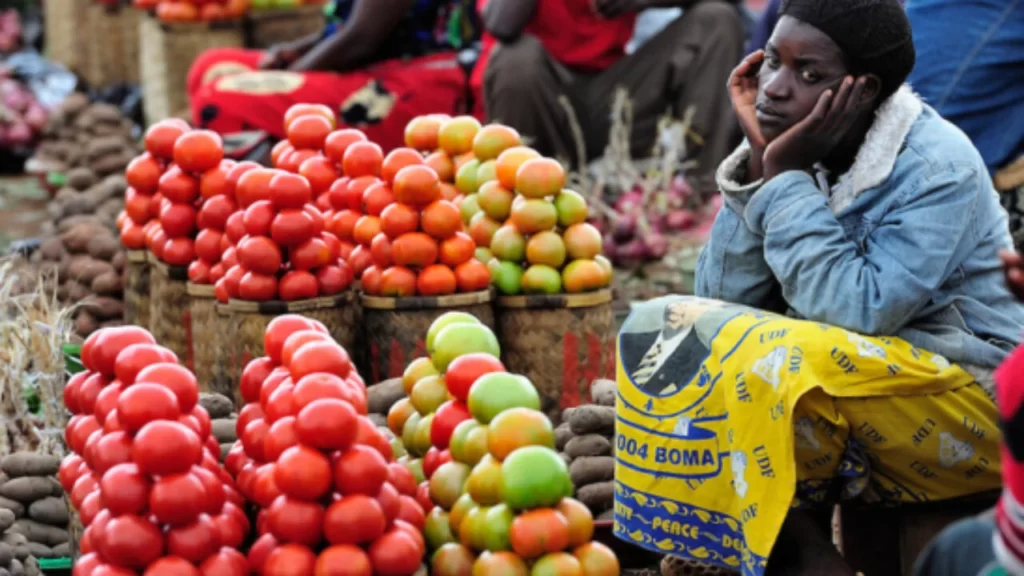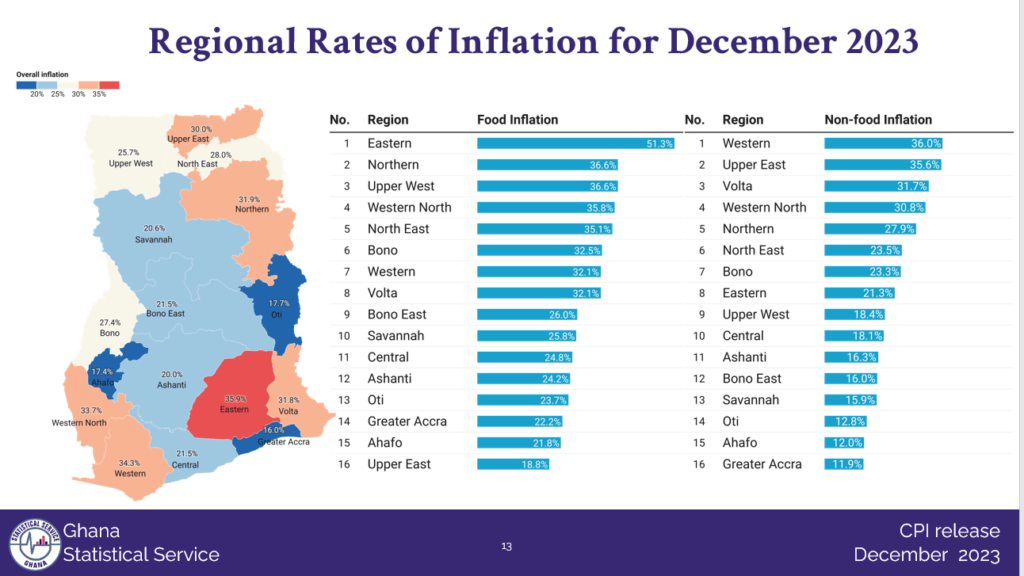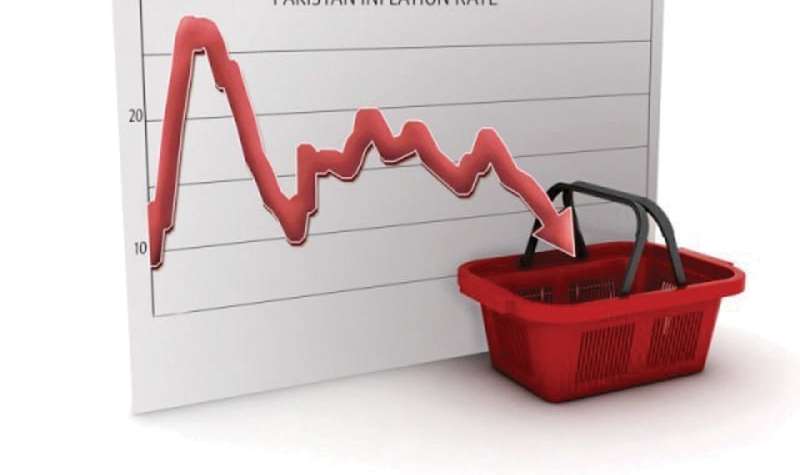In a positive economic development, Ghana has witnessed a continuous decline in inflation for the fifth consecutive month, with the rate dropping to 23.2% in December 2023, down from 26.4% in the preceding month. The latest Consumer Price Index (CPI) data, released on Wednesday, January 10, 2024, highlights a favorable trend in the country’s economic landscape.
The December 2023 inflation rate signifies that the general price level was 23.2% higher than in December 2022, reflecting a notable decrease compared to the previous months. This positive trajectory is a testament to the effectiveness of economic policies and measures to address inflationary pressures.
Analyzing the components of inflation, the data reveals that food inflation stood at 28.7%, indicating a moderation in the price increases of essential commodities. On the non-food front, inflation recorded a rate of 18.7%, reflecting stability in the prices of goods and services beyond the food sector.

Breaking down inflation rates based on the origin of goods, locally produced items experienced an inflation rate of 23.8%, while imported items recorded a slightly lower rate at 21.9%. This divergence suggests that efforts to boost local production and reduce reliance on imports may be contributing to the overall decline in inflation.
A closer look at regional variations in food inflation rates unveils interesting disparities. The Eastern region topped the list with the highest food inflation rate of 51.3%, indicating potential challenges in the availability and affordability of food items in that area. On the other end, the Upper East region recorded the lowest food inflation rate at 18.8%, showcasing a more stable food market.
Surprisingly, the Greater Accra region, often considered the economic hub of the country, placed 14th among the 16 regions in terms of food inflation, recording a rate of 22.2%. This deviation raises questions about the localized factors influencing food prices in the capital region.
The decline in inflation rates reflects domestic and global factors, including prudent fiscal policies, improved agricultural productivity, and stable global commodity prices. The government’s efforts to address inflation have likely played a crucial role in creating a more favorable economic environment.
While the overall economic outlook appears promising with the sustained decline in inflation, policymakers must remain vigilant to ensure the continued stability of prices and prevent potential external shocks. Additionally, addressing regional disparities in food inflation rates may require targeted interventions to promote food security and affordability in specific regions.
The government’s commitment to implementing effective policies and fostering economic resilience will be pivotal in sustaining this positive momentum and ensuring long-term stability in the country’s economic landscape. As stakeholders assess the implications of these figures, the focus now shifts to maintaining this trajectory and fostering inclusive economic growth across all regions of the country.
A Decline In Yuletide
A decline in inflation during the festive season held significant implications for consumers, businesses, and the overall economic landscape. As the cost of living tends to spike during holiday periods due to increased demand for goods and services, a reduction in inflation came as a welcome relief.

For consumers, a lower inflation rate translates to increased purchasing power. With prices rising at a slower pace, individuals and families enjoyed the festive season without feeling the pinch on their wallets. Reduced inflation means that the cost of holiday essentials, from food to gifts, was more manageable, allowing households to allocate resources to various celebratory activities.
Businesses also benefited from a decline in inflation during the festive season. Lower inflation rates stimulated consumer spending as people felt more confident in their financial capacities. This boost in consumer confidence often results in increased sales for businesses across various sectors, contributing to a more buoyant economic environment.
Moreover, a decrease in inflation can foster a more stable economic climate, encouraging long-term investment and growth. When businesses can predict and plan for stable prices, they are more inclined to make strategic decisions, such as expanding operations and hiring more employees.
Governments and policymakers also closely monitor inflation trends, especially during festive periods. A decline in inflation allows for a more predictable economic landscape, enabling policymakers to implement targeted interventions and ensure that the benefits of stable prices are distributed across the population.
In essence, a decrease in inflation during the festive season brings about a positive domino effect, fostering economic stability, boosting consumer confidence, and creating an environment conducive to sustainable growth. As individuals and businesses revel in the holiday spirit, a more affordable and stable economic backdrop enhances the overall enjoyment of the festive season for everyone involved.
READ ALSO: The Youth Manifesto “Votes” For Jobs




















